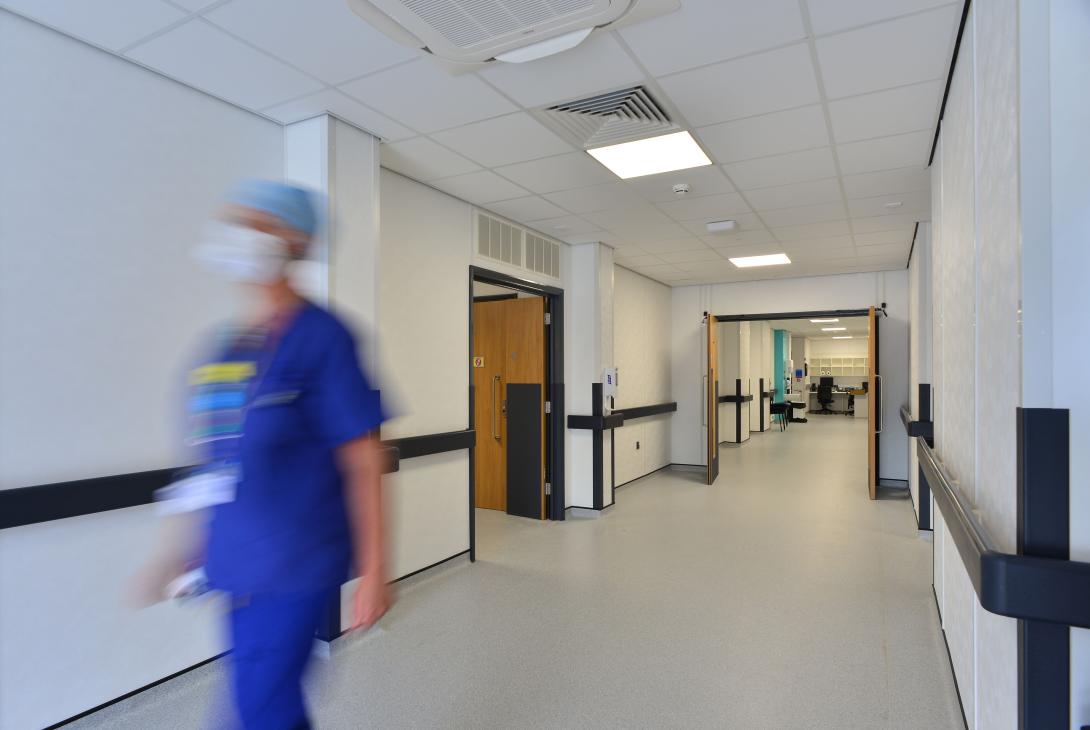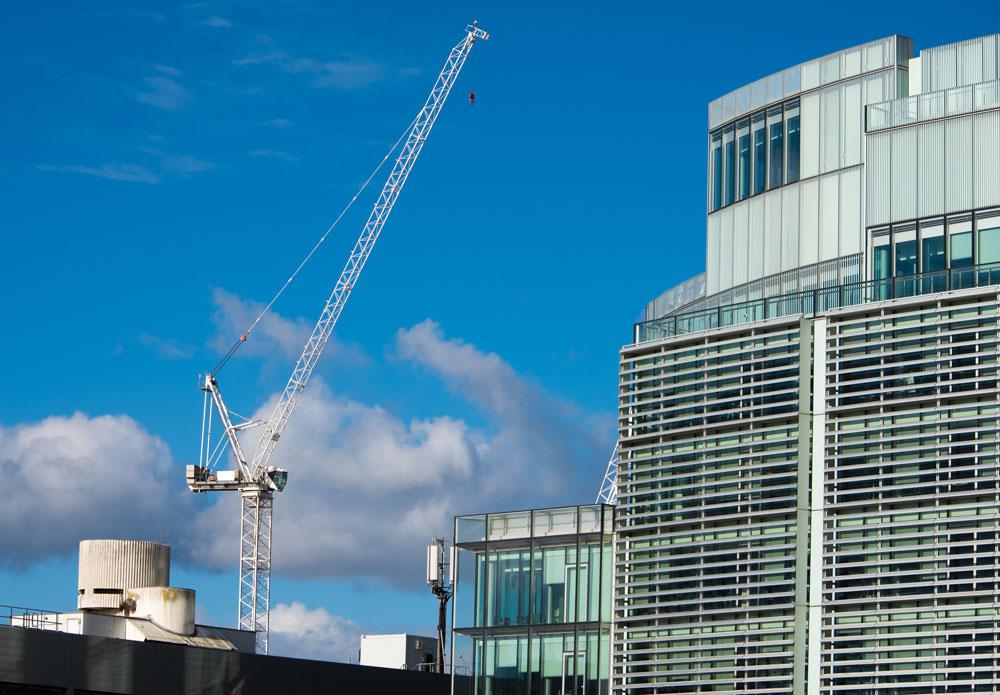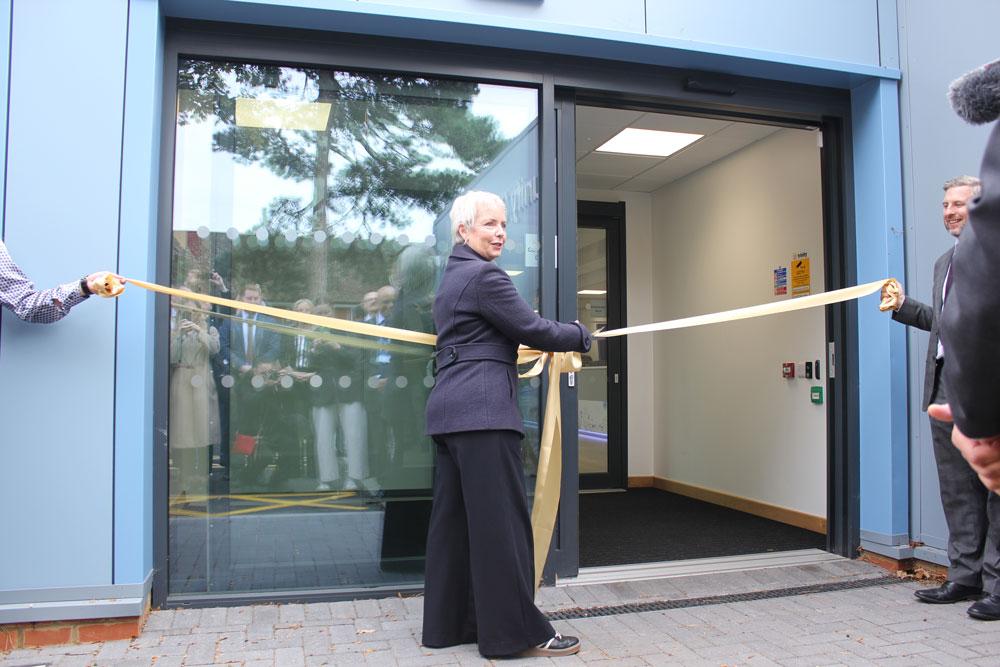The pressure of operating Covid-secure construction environments combined with tough schedules and difficult specification decisions are all taking a toll on developers – particularly those operating in the healthcare sector. Jackie Maginnis, chief executive of the Modular and Portable Building Association, discusses how Modern Methods of Construction are responding to help provide a rapid and agile solution
When Covid struck there was fear and confusion across the country – those working in healthcare gained massive acclaim from a population in awe of the gargantuan efforts being made by NHS and caring professions but behind the scenes an army of construction supply chain workers were looking at innovative ways to fast-track construction programmes in the sector.
Providers of modular and portable buildings worked throughout the lockdown and increased shifts to keep up with demand for additional healthcare facilities. This demand changed as the pandemic took hold – initially portable and new modular buildings were used to extend existing facilities to create more emergency beds and welfare facilities. Buildings were being set up with specific configurations and welfare units were redesigned to enable one way access, individual toilet amenities and to allow social distancing in communal spaces such as canteens and offices. Once the vaccine rollout started to progress at pace, this demand changed and there was an urgent need for more testing facilities.
As we strive to recover from the pandemic, it has forced a rethink of the way buildings are designed and built. It is a given, at least in the short term – that social distancing measures are here to stay. There is now widespread agreement that in order to operate effectively and safely developers need to reduce their reliance on labour-intensive traditional construction and look to new methods.
Taking the majority of the build process offsite into well-managed factory environments requires much less manual labour, making volumetric modular methods inherently easier to implement safer social distancing protocols and enhanced hygiene regimes. Factories also offer health and safety benefits because they are controlled settings where procedures and process take priority.
Modular keeping construction moving
Another significant aspect is the supply chain simplicity offered via modular approaches – taking many of the complexities surrounding specification off the critical construction timeline. The pandemic combined with the Brexit transition has created serious challenges across the construction arena. With well-established supply chains predominately in the UK, using volumetric modular technology can help avoid disruption.
The potential for a faster and more streamlined build process was highlighted by the UK Commission for Employment and Skills Council which estimated that if 25 per cent of the construction sector transitioned to offsite approaches, a 3.6 per cent increase in productivity would be easily achievable.
Modular technology reduces build times by an impressive 50-60 per cent when compared to traditional processes. This quick turnaround time is key for helping the construction industry offset delays in project timelines.
As has been clearly demonstrated during this time of crisis – factories can keep rolling and where there is an urgent need – increase shifts up to 24 hours a day. Many of our members made immense efforts to help support the construction of additional healthcare facilities over the last 18 months or so, achieving unprecedented delivery schedules of a few weeks rather than many months or even years.
Safety and regulation
There is quite rightly a renewed focus on the quality of materials and the processes involved in creating buildings. Again, this is where modular construction can offer some much-needed assurances, as the supply chains and testing regimes are much more connected. Not only does this ensure smooth delivery within a tight timeframe, but it also limits the opportunities for materials to be ‘engineered’ out and allows for a high level of accountability throughout the build process.
With modular construction all data can be validated and coordinated as part of a structured process, which helps provide accurate and reliable information for clients at the point of handover. By verifying the materials and products to be used well in advance and by simplifying the onsite assembly process, volumetric modular construction offers developers an opportunity to avoid many pitfalls associated with traditional onsite methods.
Modular construction also helps ensure client satisfaction through the certainty and quality embedded into the build process. Modular builds are less susceptible to poorly specified manufacturers’ products as time can be taken upfront to validate the correct specification of materials. This allows clients to have confidence in the quality and performance that they can expect from their new buildings. By completing large elements of construction away from the build location, they can also reduce the length of construction time spent onsite as well as reduce the risk of unforeseen issues.
It is standard industry practice for Building Information Modelling (BIM) to be embedded into the design and advanced manufacturing processes involved in modular construction. As an established method of sharing lifecycle data across design, construction and operation – BIM is also regarded as integral to achieving traceability of all materials within modular builds. Since 2016 the BIM mandate has required UK public sector construction projects to use BIM technology. This has helped speed up the pace of adoption during the design and construction phases.
Combating climate change
The climate emergency still remains a key concern. Compared to traditionally built projects – up to 67 per cent less energy is required to produce modular builds. Offsite modular construction also has a positive impact on the carbon footprint of buildings as it allows for a reduction in the total number of deliveries to sites by up to 90 per cent.
In addition, not only is the actual construction process ‘greener’, but the airtightness achieved in using volumetric modular approaches enhances in use energy efficiency and reduces carbon omissions for the lifetime of the building. Modules can now also be factory fitted with sustainable technology such as solar panels and energy-efficient glass.
Promoting knowledge transfer and training opportunities
We are now seeing a shift in attitudes when it comes to modular technology largely driven by an increase in awareness of the quality, time and cost-saving benefits. This in turn is leading to an extraordinary upturn in adoption.
As the construction industry starts to emerge from this pandemic, it’s important we lay down foundations for more rapid and sustainable building programmes, where the focus is on quality and delivering healthcare facilities that are fit for the future. To assist, the MPBA has launched a new Training Centre which delivers informative education programmes created by industry experts where young and mature students can learn key skills relevant to the sector.
The facility, which is located in Coventry, West Midlands – offers a comfortable environment for knowledge share away from the pressures of the workplace. The Training Centre provides the MPBA with the ability to deliver a consistent high level of informative technical and best practice programmes for members.
About MPBA
The MPBA plays a key role in the connecting of sectors in the modular and portable building industry. The association collaborates with specialist technical advisors to enhance innovation in the design and manufacture of modular buildings. These can be designed and manufactured from timber or steel in any size and shape to meet individual client needs while ensuring full compliance with Building Regulations.
To discover how modular technology can benefit healthcare construction projects go to: www.mpba.biz





